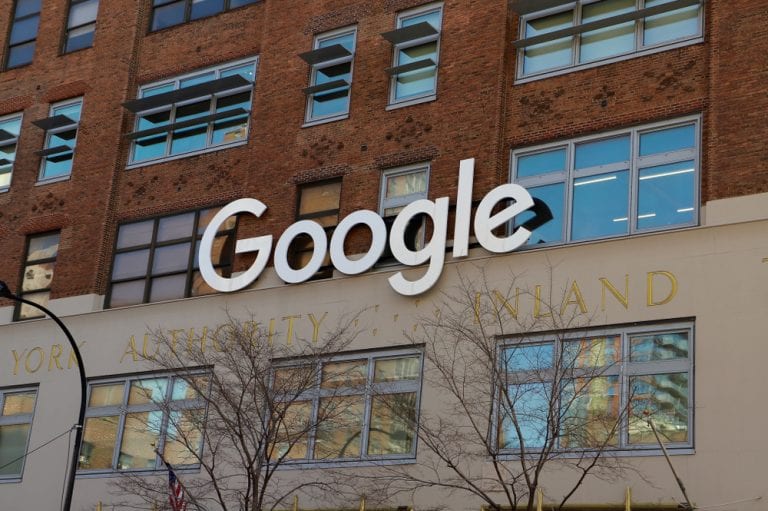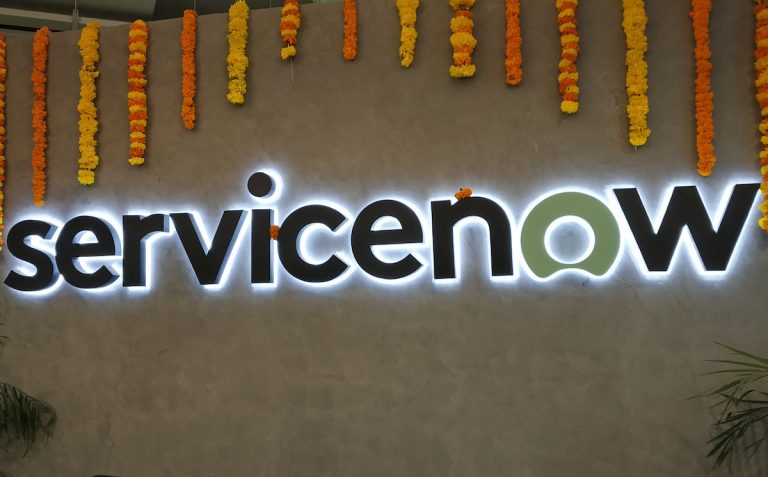Google Cloud Enables AI Invoice Processing With Taulia

Supply chain payment technology firm Taulia is teaming up with Google Cloud to enable an artificial intelligence-powered invoice processing solution.
Taulia said in an announcement Wednesday (April 10) that its new solution with Google Cloud aims to address key points of friction in the invoicing process, including corporates’ use of an array of invoice formats, reliance on unstructured data, and the challenge of processing that invoice data. Described as “cognitive invoicing,” the tool allows companies to automate invoice processing regardless of file format that suppliers send.
Google Cloud’s newly-announced Document Understanding AI technology will enable interpretation of unstructured data from supplier invoices within the Taulia invoicing platform via optical character recognition, the press release noted, adding that these technologies can lower the cost of invoice processing and accelerate approval times for faster payments to suppliers and early payment discounts.
“Using AI we have finally cracked the intractable invoice processing issues that many businesses face,” said Taulia CTO Brady Cale in a statement. “We are now able to fully realize our vision of enabling buyers and suppliers to freely exchange information. The faster an invoice can be processed, the sooner it can be leveraged with the company’s working capital strategy, thereby bringing more opportunities for companies to free up cash.”
In another statement, Google Head of ML Tech Partners Pallab Deb said that companies today demand “easy, scalable solutions to extract deep insights from their unstructured content and documents.”
“We are thrilled to offer Document Understanding AI in collaboration with partners like Taulia to enable our customers to unlock valuable insights from their documents,” Deb added.
The collaboration with Taulia was announced the same day Google revealed new artificial intelligence tools using Document Understanding AI, launched in beta. The solution integrates with other enterprise platforms including Accenture, Box and DocuSign.
“Most companies have billions of documents — and moving that information into digital or cloud-native solutions where it can be easily accessed and analyzed can involve many hours of manual entry,” said Google Cloud Group Product Manager Levent Besik in a blog post, reports said this week.
Will Consumers Pay $50 for Drugstore Brand Sunscreen?

Inflation might be cooling but it hasn’t worn off yet, especially as consumers continue to purchase products that can essentially be dubbed “in demand.” Take Olay’s new SPF 30 mineral sunscreen for sensitive skin, which was reportedly found to retail for $50 in stores.
In a recent TikTok post, Andrea Suarez, a dermatologist based in Houston, expressed disbelief as she discovered a 1.7-ounce size of Olay’s new SPF 30 mineral sunscreen for sensitive skin priced at $49.99. A Glossy report noted the post appeared to have been filmed at a Walgreens location.
Earlier this week, PYMNTS reported that as consumers make cutbacks prices are being slashed — but only on the items they are cutting back on. This trend has created a ripple effect in the market.
Meanwhile, beauty products continue to see price hikes.
Read more: Inflation Cools as Consumers Continue Cutbacks
The Appeal of Private Label, Generic or Drugstore Brands
Private-label brands have long been considered a generic alternative to premium brands. The same can be said for brands found at drugstores, as consumers often turn to them as a last resort when they can’t find the brand they’re looking for, or when their preferred brands are out of their price range.
As inflation continues to impact consumers, they are increasingly drawn to private labels, generic brands, drugstore labels and even counterfeits. And in today’s age, consumers are openly sharing their cost-effective purchases on social media.
Furthermore, consumers are willing to seek out economical options that deliver similar outcomes to expensive products. For instance, they are turning to alternatives like the Shark FlexStyle Air Drying & Styling System, which costs $299.99, instead of the $600 Dyson Airwrap. Similarly, they are choosing the $10 e.l.f. Poreless Putty Primer over Tatcha’s $54 Silk Canvas Protective Primer.
Consequently, private labels are looking to benefit from these trends by expanding their product range or enhancing product quality, providing a premium version under their label.
As a result, consumers are now finding themselves in the same price predicament but with a new name — the “premiumizaton” of private label brands.
See also: Dupe, Private Label, Call It What You Want, Consumers Want More
Olay’s $50 sunscreen has garnered significant attention on social media and online forums, not specifically about Olay but drugstore beauty brand price hikes in general.
The BeautyGuruChatter subreddit frequently features posts from users expressing dissatisfaction with drugstore prices. In February of this year, one user expressed surprise at the $20 cost of a NYX primer, while a post in November 2022 lamented the “death of drugstore pricing” and criticized NYX Cosmetics, Makeup Revolution and e.l.f. Beauty for becoming too expensive. The post stated, “I’m disappointed that $15 no longer seems to offer good value.”
Dupes in the Grocery Aisle
While private labels in the grocery aisle are not new, consumers are seeing more private-label alternatives in items like mac and cheese, ketchup and pasta sauce. Reacting to this trend, Dollar General announced in March that it would be beefing up its own private-label selection in a bid to better compete with retail giants like Walmart.
“We’re seeing shopping behaviors indicative of this environment,” Jeff Owen, chief executive officer, said at the time of the announcement. “We continue to see customers shift spending to more affordable options, including our private brands, which represent more than 20% of our total sales within consumables. Private brand growth, both in absolute dollars and penetration, was the highest in the fourth quarter.”
See: Dollar General Takes Aim at Walmart, Beefs Up Private-Label Brands and Perishables
Consumers Cautious About Inflation
PYMNTS research indicates that while inflation has decreased slightly since its peak in July 2021, 70% of grocery shoppers and 67% of retail customers anticipate significant price increases in the next 12 months. Most people do not anticipate a significant improvement in the price outlook until late 2024.
The study also discovered that consumers were 21% more inclined to cut back on spending for retail items compared to groceries. Approximately 6 out of 10 consumers reported switching to less expensive retailers, while 35% chose to sacrifice product quality for cheaper goods.
The Federal Reserve’s recently-released “Survey of Consumer Expectations” indicated Americans believe inflation will continue for an extended period. However, these expectations have been slightly tempered.
According to the data, consumers are projecting a 4.4% increase in inflation in the upcoming year, which is better than the 4.7% forecast in the Fed’s March survey of consumers.
Moreover, the report revealed that median household spending growth expectations decreased from 5.7% in March to 5.2% last month, marking the lowest reading since September 2021. The Fed highlighted that this decline was primarily caused by respondents with a household income exceeding $50,000, as they anticipate a decrease in spending.
Where Premium Labels Stands to Go
While it’s probably safe to say that $50 for a drugstore sunscreen alternative is ludicrous, retailers may want to see if consumers are willing to pay for products with such a markup. Glossy cited an Olay representative saying that while the official manufacturer’s suggested retail price for the Olay Sensitive Mineral Sunscreen with SPF 30 is $29.99, pricing is at the discretion of the retailer.
Salsa Raises $10 Million to Help Platforms Embed Payroll Features

Salsa has raised $10 million to help software platforms embed payroll features inside their own products.
By embedding Salsa’s application programming interfaces (APIs) in their platforms, developers can enable businesses to handle payroll within the same software platform they use to manage their business and employees every day, Salsa said in a Wednesday (May 10) press release.
“The reason this hasn’t happened yet is because payroll products have always been very hard to build and maintain,” Salsa CEO and Co-founder John Kramer said in the release. “With Salsa, any developer can imagine a better payroll experience and launch it a month later.”
Salsa’s APIs can be embedded into a variety of platforms serving United States and Canadian businesses — point of sale, scheduling, booking, neobank and freight management, for example — providing developers with another way to generate revenue and giving their customers an all-in-one solution, according to the release.
Salsa’s funding round was led by Greycroft, Better Tomorrow Ventures and Definition, the release said.
“Salsa has identified and addressed a major gap in the FinTech industry by creating a smart and efficient method to integrate payroll into the platforms businesses are already using,” Greycroft partner Will Szczerbiak said in the release. “John and his team have taken a novel approach to the problem of making payroll better, and they’ve designed a way to make it easier to build for customers across multiple sectors.”
In other news related to payroll, Santander Bank N.A. and DailyPay partnered in April to offer an on-demand pay benefit.
With their collaboration, Santander’s Commercial Banking clients in the U.S. can provide their employees with immediate access to their pay as they earn it.
Also in April, credit union service organization (CUSO) Dora Financial launched a payroll payment system for businesses with independent contractors and gig workers.
The new DoraPay enables more efficient management of 1099 payroll and the offering of employer-sponsored benefits.
In March, Rain raised $116 million to upgrade its platform that lets employers offer workers on-demand pay or earned wage access (EWA).
Rain’s service is free to employers who offer it as a voluntary benefit to workers, who in turn pay a fee every time they withdraw earned wages.
For all PYMNTS B2B coverage, subscribe to the daily B2B Newsletter.
Ahrvo Labs Launches Cross-Border Open Banking Platform Supporting 185 Currencies

Ahrvo Labs has launched a platform that allows any authenticated bank account to be used for cross-border transactions.
The company’s new Cross-Border Open Banking platform supports transactions in 185 currencies and eliminates the need for traditional layers of onboarding, Ahrvo Labs said in a Thursday (May 11) press release.
“Historically, cross-border payments have been characterized by their slow pace, high costs and complexity. These factors have posed significant challenges for individuals and businesses looking to transfer funds across international boundaries,” Ahrvo Labs CEO Appo Agbamu said in the release. “Our Cross-Border Open Banking protocol takes on these issues head-on, offering a streamlined and efficient platform for cross-border fund transfers.”
PYMNTS research has found that concerns about fraud, foreign exchange (FX) fluctuations and other cross-border payment frictions have inspired many United States and United Kingdom businesses to invest in digital innovations to make their cross-border payments operations smoother, simpler and more secure.
For example, 31% of these businesses are planning to automate their cross-border payables and 32% are planning to automate their cross-border receivables, according to “Innovating Cross-Border Payments: What US and UK Businesses Need to Know,” a PYMNTS and Visa collaboration.
The report also found that 40% of U.S. and U.K. businesses hope to expand their B2B payments offerings by enabling supplier payments to digital wallets and 11% intend to do so by enabling supplier payments to virtual cards.
Ahrvo Labs’ Cross-Border Open Banking platform allows customers to connect to open banking providers integrated within the protocol; use a variety of liquidity providers and wallet funding methods and currencies; and make secure, compliant payments enabled by the company’s know your customer (KYC) and know your business (KYB) solutions, according to the press release.
The platform is powered by Ahrvo Labs’ collaboration with partners like Thunes, Nium, Convera, MX, Trustly and Brankas, the release said.
“We’re excited to introduce our Cross-Border Open Banking service and play a significant role in promoting financial inclusion and accessibility on a global scale,” Agbamu said in the release. “Our solution is crafted to be user-friendly and efficient, promising our customers a seamless and secure experience for global fund transfers.”
For all PYMNTS B2B coverage, subscribe to the daily B2B Newsletter.
ServiceNow to Acquire G2K to Add IoT Technology to Platform

ServiceNow plans to acquire G2K to add new capabilities to its solutions for brick-and-mortar businesses.
The transaction will add G2K’s Internet of Things (IoT) technology to ServiceNow’s Now Platform, providing organizations in retail and other industries with real-time data across storefronts and other physical spaces, the companies said in a Friday (May 12) press release.
The acquisition is subject to regulatory approval and is expected to close in the third quarter, according to the release.
“Retail is just the beginning,” Karel van der Poel, senior vice president and general manager at ServiceNow, said in the release. “This acquisition allows ServiceNow to create even greater simplicity and efficiency for our customers’ growing needs across any industry, from manufacturing and supply chain to transportation and entertainment.”
G2K’s artificial intelligence (AI)-powered technology translates the data gained from stores, employees and customers into insights and helps businesses plan inventory based on demand, improve on-site customer experiences, address in-store maintenance or mechanical issues and increase employee productivity, according to the release.
When these physical capabilities are integrated into ServiceNow’s Now Platform, they will boost the platform’s ability to provide enterprise-grade retail workflows, the release said.
“Many retailers are turning to a range of AI point solutions to help reshape retail experiences for employees and customers alike, but this results in fractured operations across the enterprise,” G2K Chief Technology Officer and Co-founder Omar El Gohary said in the release. “Together, G2K and ServiceNow will realize a connected vision for our customers and help transform the world of work for retail and beyond — and we couldn’t be more excited about it.”
As PYMNTS reported in December, next-generation tools like connected IoT profiles and RFID tracking are powering operational enhancements like mobile dashboards, automated order picking and intelligent inventory management systems.
These solutions allow for greater agility and flexibility in order fulfillment, optimize stockout management and provide retailers with tools to remove friction from the shopping experience by eliminating back-end bottlenecks.
In industrial applications, the real-time data provided by IoT helps operations managers or AI identify issues, fix them and experiment with solutions to make things work more smoothly next time.